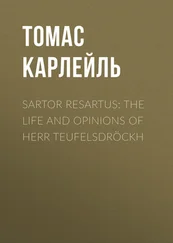Vladimir Nabokov - Strong opinions
Здесь есть возможность читать онлайн «Vladimir Nabokov - Strong opinions» весь текст электронной книги совершенно бесплатно (целиком полную версию без сокращений). В некоторых случаях можно слушать аудио, скачать через торрент в формате fb2 и присутствует краткое содержание. Город: New York, Год выпуска: 1990, Издательство: First Vintage International Edition, Жанр: Классическая проза, на английском языке. Описание произведения, (предисловие) а так же отзывы посетителей доступны на портале библиотеки ЛибКат.
- Название:Strong opinions
- Автор:
- Издательство:First Vintage International Edition
- Жанр:
- Год:1990
- Город:New York
- ISBN:нет данных
- Рейтинг книги:4 / 5. Голосов: 1
-
Избранное:Добавить в избранное
- Отзывы:
-
Ваша оценка:
- 80
- 1
- 2
- 3
- 4
- 5
Strong opinions: краткое содержание, описание и аннотация
Предлагаем к чтению аннотацию, описание, краткое содержание или предисловие (зависит от того, что написал сам автор книги «Strong opinions»). Если вы не нашли необходимую информацию о книге — напишите в комментариях, мы постараемся отыскать её.
Strong opinions — читать онлайн бесплатно полную книгу (весь текст) целиком
Ниже представлен текст книги, разбитый по страницам. Система сохранения места последней прочитанной страницы, позволяет с удобством читать онлайн бесплатно книгу «Strong opinions», без необходимости каждый раз заново искать на чём Вы остановились. Поставьте закладку, и сможете в любой момент перейти на страницу, на которой закончили чтение.
Интервал:
Закладка:
In 1957, the Lolita affair entered its American phase, which to me was in every way more important than its Olympia one. Jason Epstein, by championing the publication of a considerable portion of Lolita in the summer issue, 1957, of Anchor Review, edited by Melvin J. Lasky (Doubleday, New York), and Professor F. W. Dupee, by prefacing that portion with a brilliant article, helped to make the idea of an American edition acceptable. Several publishers were interested in it, but the difficulties Mr. Girodias created in our negotiations with American firms were another source of acute vexation on my part. On September 14, 1957, the head of a distinguished American publishing house flew over to Paris to discuss matters with Mr. Girodias. The latter's account of the interview runs like this in his article: «One publisher spontaneously offered a 20 percent royalty to get the book, but was then apparently frightened away by Nabokov's attitude when he met him later in New York». One part of this passage is inaccurate and the other simply untrue: it was not I who dissuaded this particular publisher, but his partner. The account is inaccurate because Mr. Girodias does not say who was to get most of that 20 percent. «I am prepared to accept this proposal», wrote Mr. Girodias to me (apparently under the impression that he had got a definite otter which was not the case), «if my share is assured at 12,5 percent. The advance would be shared in the same proportion. Would you accept 7,5 percent as your share? I consider my claim justified and fair». My agent wrote that she was « outree de ces pretentious ». (His contract obliged him to pay me a 10 percent royalty up to ten thousand copies, and 12 percent after that.)
The interim copyright stipulated that no more than 1500 copies should be imported into the U.S. Mr. Girodias rather resented my keeping an eagle eye on his lighthearted transatlantics. I knew for instance that copies of his edition were being sold for $12 and more in New York. He assured me that the difference was pocketed by the retailers. On November 30, 1957, Mr. Girodias wrote in a mellow mood «I admit that I have been wrong on several occasions in the course of our dealings. ..». He added that he no longer «requested a larger share of the proceeds» of the American edition and that he was canceling his «alternative project» of bringing out his own «American reprint» — a silly threat, the carrying out of which would have been his undoing. But already by December 16, 1957, he was larking again: On that day I learnt with wonder from my agent that Mr. Girodias declared he had sold only eight copies in America in three months (April to June) but that since I thought he had done so at a higher price than shown in his statements ($7.50) he was sending me the difference, a check for 50 cents. And he added that he considered all our differences now settled!
It would be tedious to continue giving instances of the delayed or incomplete statements of accounts that marked Mr. Girodias' course of action during the following years or of such misdemeanors as publishing in Paris a reprint of his edition of Lolita with his own introduction (in intolerably bad English) without my permission — which he knew I would never have given. What always made me regret our association were not «dreams ot impending fortune», not my «hating» him «for having stolen a portion of Nabokov's property», but the obligation to endure the elusiveness, the evasiveness, the procrastination, the dodges, the duplicity, and the utter irresponsibility of the man. This is why, on May 28, 1959, before sailing for Europe after exactly 19 years of absence, I wrote to Mme. Ergaz that I did not wish to make the acquaintance of Mr. Girodias when I came to Paris for the launching of the French translation of Lolita. As revealed now by his Evergreen article, the depths of his personality are even less attractive than they seemed when showing through our correspondence. I suspect that much of the rudeness in his article is the result of his relying too heavily on a journalistic style, redolent, perhaps, of Gallic levity but sadly wanting in English precision. Anyway, I shall not discuss here the insolent and vulgar remarks he makes in regard to my wife (idiotically insinuating, for instance, that certain editorial comments in Life International, July 6, 1959, were written by her though signed «ED»).
Let me repeat: 1 have never met Mr. Girodias. He has been described as «fascinating», and «debonair», and «exuding French charm»; that is about all I have to go upon when trying to picture him to myself as a physical being (his moral aspect I know well enough). However, half-a-dozen years after the beginning of our gappy correspondence, he suddenly proclaimed in a Playboy article («Pornologist on Olympus», April, 1961) that we had been actually introduced to each other at a cocktail party given by Gallimard on October 23, 1959, in Paris, despite my warning my agent I did not want to meet him. The details he gave were so absurd that I saw myself obliged to call his bluff, and did so in the July issue of Playboy, 1961. Instead of the stunned silence that I expected would last for ever, Mr. Girodias after brooding on my little note and his imaginary past during the next four years, comes up now with a new version of the event in his Evergreen piece. The discrepancies between the two variants are typical of what scholars call «waning» apocrypha. In Playboy we have a classical description of «the members of Gallimard family» looking «horrified» while Mr. Girodias «slowly progressed toward the author through a sea of bodies» (a splendid image, that sea). In Evergreen, there are no Gallimards, but we find, instead, Monique Grail «doubled over in helpless mirth, in a corner» and another lady, Doussia Ergaz, «hiding in a corner» (i.e., another corner) and, most unconvincingly, «choking on a macaroon». In the Playboy codex, Mme. Ergaz is described as Mr. Nabokov's «literary agent and patient supporter». In the Evergreen scroll, she has become Mr. Girodias' «dear, suffering, terrified friend». In Playboy, he and I exchange a few «not unfriendly» sentences. In Evergreen, the great meeting is wordless: I limit myself to a «vacuous grin» and immediately turn away to talk «ardently» to a «Czech reporter» (an unexpected and rather sinister personage of whom one would like to hear more from our chronicler). Finally, and rather disappointingly the passage in Playboy about the quaint way I «plunged backwards and sideways with the easy grace of a dolphin» is now replaced by the «graceful ease of a circus seal»; whereupon Mr. Girodias «went o the bar and had a drink» (plain Playboy) or «went to down a few glasses of champagne» (lush Evergreen).
As I pointed out in my rejoinder: even if Mr. Girodias was introduced to me (which I doubt), I did not catch his name; but what especially invalidates the general veracity of his account is the little phrase he slips in about my having «very obviously recognized» him as he was slowly swimming toward me amid the “bodies”. Very obviously, I could not have recognized somebody I had never seen in my life; nor can I insult his sanity by suggesting he assumed I had somehow obtained his pir.tiie (in the days of the famous curriculum vitae) and had been cherishing it all those years.
I am looking forward to Mr. Girodias' third version of our mythical meeting. Perhaps he will discover at last that he had crashed the wrong party and talked to a Slovak poet who was being feted next door.
Written on February 15, 1966, and published in Evergreen Review, xlv, February, 1967. I have not head from Mr. Girodias since 1965.
ON ADAPTATION
Here is a literal translation of a great poem by Mandelshtam (note the correct form of his name), which appears in the original Russian on pp. 142 and 144 of Olga Carlisle's anthology Poets on Street Corners (Random House, New York, 1968). It consists of sixteen tetrametric (odd) and trimetric (even) anapaestic lines with a masculine rhyme scheme bcbc .
Читать дальшеИнтервал:
Закладка:
Похожие книги на «Strong opinions»
Представляем Вашему вниманию похожие книги на «Strong opinions» списком для выбора. Мы отобрали схожую по названию и смыслу литературу в надежде предоставить читателям больше вариантов отыскать новые, интересные, ещё непрочитанные произведения.
Обсуждение, отзывы о книге «Strong opinions» и просто собственные мнения читателей. Оставьте ваши комментарии, напишите, что Вы думаете о произведении, его смысле или главных героях. Укажите что конкретно понравилось, а что нет, и почему Вы так считаете.










